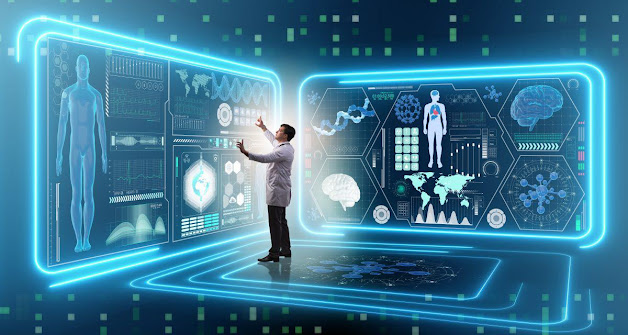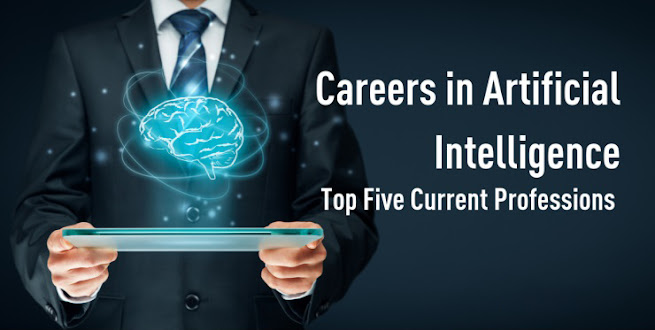Roles and Uses of AI in different fields
Artificial Intelligence (AI) has been a buzzword for several years, and for good reason. The potential for AI to transform the way we live and work is huge, and it's already having a significant impact in many industries. In this article, we will explore the roles and uses of AI in different fields.
Healthcare:
AI is playing a critical role in healthcare by helping to analyze medical images, detect diseases, and suggest treatments. It can also help healthcare providers to personalize treatment plans for individual patients based on their medical history and genetic data. For example, AI can be used to analyze large amounts of data from medical records to identify patterns and insights that can help doctors make better diagnoses and treatment plans. AI can also be used to assist in surgical procedures by providing real-time data and feedback to surgeons.
Finance:
AI is used to analyze financial data, detect fraudulent activities, and make investment recommendations. It can also assist in predicting market trends and analyzing risk. For example, AI algorithms can be used to analyze large datasets to identify patterns and anomalies that may be missed by humans. These algorithms can also be used to make real-time predictions about financial markets, helping traders to make better decisions.
Education:
AI is being used to create personalized learning plans for students, provide feedback on student performance, and assist in the grading process. It can also be used to design curriculum and educational materials. For example, AI can be used to identify the learning style of a student and personalize the course material to their specific needs. This can help to improve student engagement and learning outcomes. AI can also be used to provide real-time feedback on student performance, helping to identify areas where students may be struggling.
Retail:
AI is being used to analyze customer data, predict buying patterns, and suggest personalized product recommendations. It can also assist in inventory management and supply chain optimization. For example, AI algorithms can analyze customer behavior to identify patterns in their buying habits. This information can then be used to make personalized product recommendations to customers, improving their shopping experience. AI can also be used to optimize inventory management by predicting demand and optimizing supply chains to reduce costs.
Transportation:
AI is being used to optimize traffic flow, predict maintenance issues, and enhance safety features. It can also assist in the development of self-driving cars and drones. For example, AI can be used to analyze traffic patterns and optimize traffic flow, reducing congestion and improving travel times. It can also be used to monitor vehicle performance and predict maintenance issues, helping to reduce downtime and increase efficiency.
Manufacturing:
AI is being used to optimize production lines, predict maintenance needs, and analyze quality control data. It can also assist in developing new products and improving supply chain management. For example, AI can be used to analyze production data to identify areas for improvement and optimize production processes. It can also be used to predict maintenance needs, reducing downtime and increasing productivity.
Entertainment:
AI is being used to create personalized recommendations for movies, TV shows, and music. It can also assist in the development of virtual and augmented reality experiences. For example, AI can be used to analyze viewing behavior and make personalized recommendations to users, improving their overall entertainment experience. It can also be used to create immersive virtual and augmented reality experiences, improving the overall entertainment experience for users.
Agriculture:
AI is being used to optimize crop yields, monitor soil health, and predict weather patterns. It can also assist in precision agriculture, which involves using technology to improve crop management. For example, AI can be used to analyze soil samples and provide recommendations for optimizing crop yield. It can also be used to monitor weather patterns and predict crop yields, helping farmers to make better decisions about planting and harvesting.
In conclusion, the roles and uses of AI are diverse and have a significant impact in different fields.
Artificial Intelligence (AI) has rapidly evolved and has become an integral part of several industries in recent years. Here are some examples of the roles and uses of AI in different fields:
- Healthcare: AI is used to analyze medical images, detect diseases, and suggest treatments. It can also help healthcare providers to personalize treatment plans for individual patients based on their medical history and genetic data.
- Finance: AI is used to analyze financial data, detect fraudulent activities, and make investment recommendations. It can also assist in predicting market trends and analyzing risk.
- Education: AI is used to create personalized learning plans for students, provide feedback on student performance, and assist in the grading process. It can also be used to design curriculum and educational materials.
- Retail: AI is used to analyze customer data, predict buying patterns, and suggest personalized product recommendations. It can also assist in inventory management and supply chain optimization.
- Transportation: AI is used to optimize traffic flow, predict maintenance issues, and enhance safety features. It can also assist in the development of self-driving cars and drones.
- Manufacturing: AI is used to optimize production lines, predict maintenance needs, and analyze quality control data. It can also assist in developing new products and improving supply chain management.
- Entertainment: AI is used to create personalized recommendations for movies, TV shows, and music. It can also assist in the development of virtual and augmented reality experiences.
- Agriculture: AI is used to optimize crop yields, monitor soil health, and predict weather patterns. It can also assist in precision agriculture, which involves using technology to improve crop management.
Overall, AI has the potential to revolutionize many industries by improving efficiency, accuracy, and productivity. As technology continues to evolve, we can expect to see even more advanced applications of AI in various fields.











Comments
Post a Comment